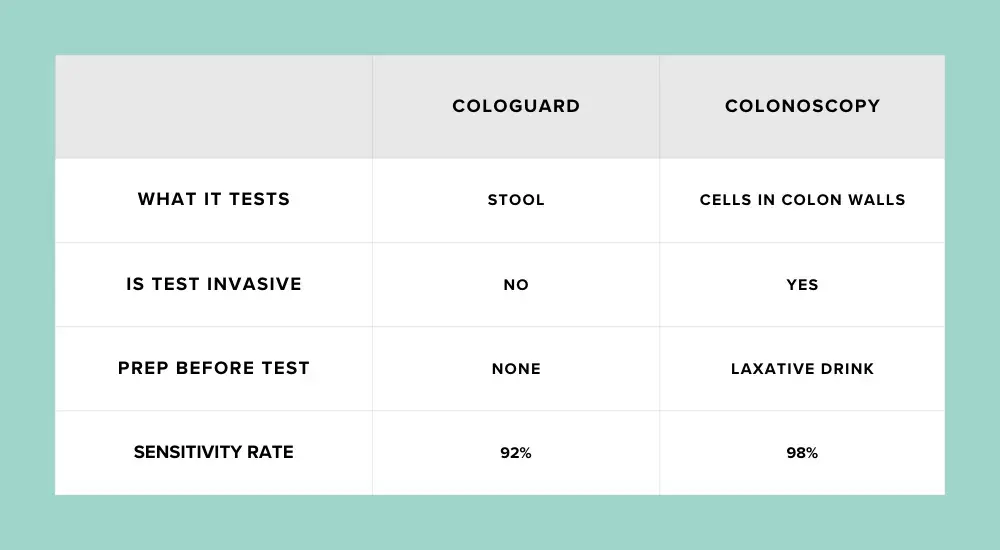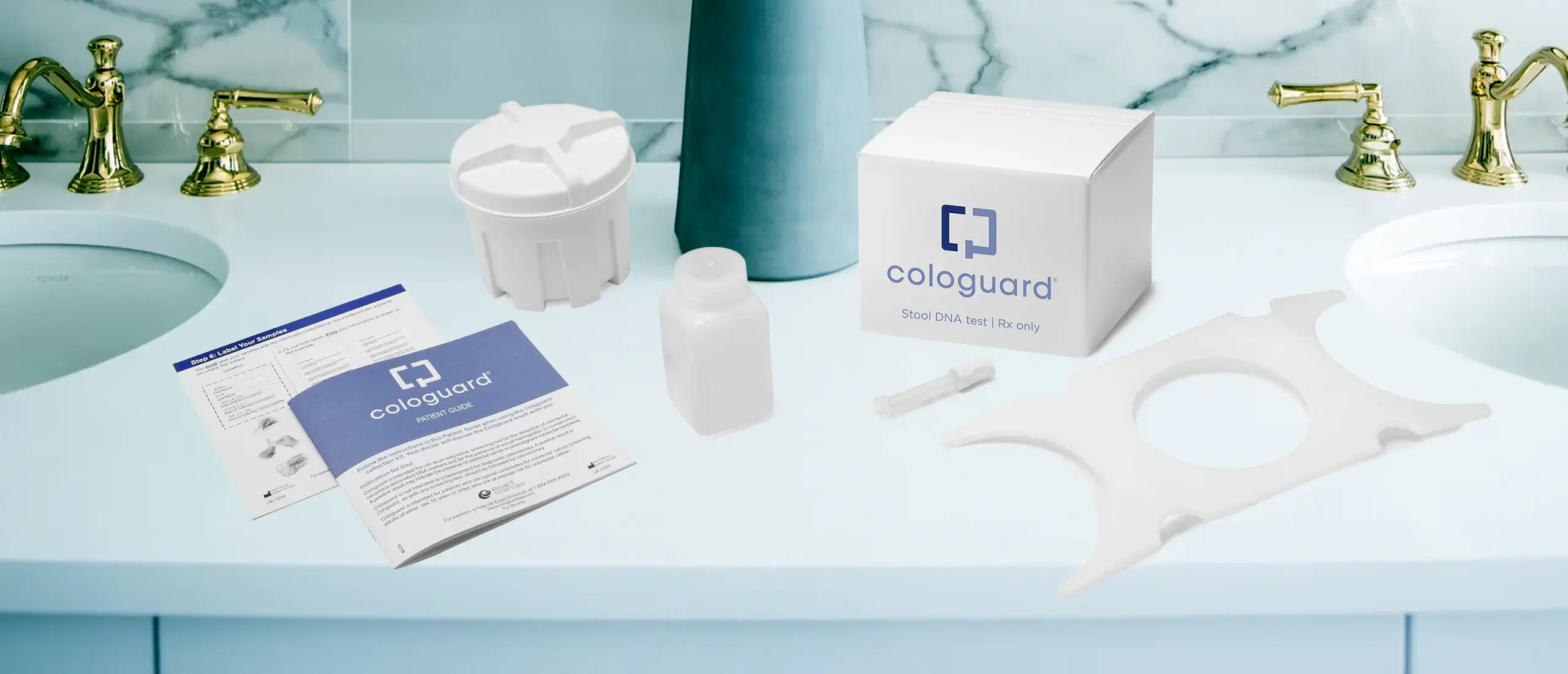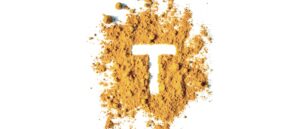Cologuard vs Colonoscopy: Is an At-Home Test as Good as Getting Scoped?
- By Stephanie Anderson Witmer
- April 17, 2024
Rates of colon cancer are rising in younger Americans: It’s now the top cause of cancer deaths in people under age 50, and rates are particularly high among Black adults (1, 2, 3). That means getting screened is more important than ever. Doing an at-home screening test like Cologuard may sound more appealing than a traditional in-office procedure, but in the battle of Cologuard vs. colonoscopy, which is most effective at screening for colon cancer?
But before three physicians dive into that debate, it’s crucial to understand the importance of getting a colorectal cancer screening done. According to assistant professor of pathology and immunology, Adam L. Booth, M.D., if you have an average risk of colon cancer, you’ll want to begin screening at age 45.
Average risk means you don’t have a condition (such as inflammatory bowel disease) that increases your risk of cancer. It also means you don’t have a family history of colorectal cancer. If a family member did have colon cancer, you’ll want to begin screening 10 years before the age they were diagnosed.
We asked experts to explain the ins and outs of each colorectal screening option, so you can make an informed decision.
Adam L. Booth, M.D., an assistant professor of pathology and immunology at Washington University School of Medicine in St. Louis who specializes in gastroenterology.
Misagh Karimi, M.D., a medical oncologist at City of Hope Orange County in California.
Judy Trieu, M.D, M.P.H., a gastroenterologist and colleague of Dr. Booth’s at the Washington University School of Medicine.
Colonoscopy vs. Cologuard: Which Is Better?
Both types of screenings can effectively detect colon cancer. The biggest difference is Cologuard is a stool-based test, while a colonoscopy is a medical procedure. Experts agree the colonoscopy is the clear winner.
“A colonoscopy is considered the gold standard for colorectal cancer screening,” oncologist Misagh Karimi, M.D. says. “It provides a more complete picture of a person’s colon than a take-home kit and detects potentially cancerous abnormalities.” (Think: precancerous polyps.)
Still, if you don’t want (or aren’t able to) get a colonoscopy, Cologuard is a solid alternative, the experts say.
“Getting screened in any way is better than not getting screened at all,” says gastroenterologist Judy Trieu, M.D, M.P.H. If anxiety around a colonoscopy is holding you back from getting screened, “I would absolutely encourage all of my patients to do at-home stool tests,” she adds.

What Is a Colonoscopy?
A colonoscopy is a Tier One screening method by the U.S. Multi-Society Task Force on Colorectal Cancer (4). It’s the most recommended colon cancer screening test because of its accuracy, effectiveness and extensive research, says Trieu.
You’ll be sedated for a colonoscopy, so you won’t feel the gastroenterologist insert a thin tube—with a camera and light on the end of it—into your rectum. The doctor will look at the colon walls to detect polyps, which Trieu describes as “little growths that have the potential to turn into cancer.” The doctor will be in and out in about 30 minutes.
Accuracy
Again, the colonoscopy gives you your best shot at detecting any abnormal DNA in your colon. As far as its accuracy goes, research indicates it has a sensitivity rate (the test’s ability to identify a positive of 98 percent for detecting colon cancer (5).
Colonoscopy prep
In order for your doctor to get a clear look, your colon needs to be clean and poop-free. Several days before your appointment, you’ll begin prepping for the procedure, Trieu explains. You’ll eat a low-fiber diet for a few days and stop any fiber supplements. The day before the test you’ll stop eating solid foods and down a laxative drink to flush everything out.
Colonoscopy prep isn’t fun, but it’s super-important. “The goal is to be able to see the colon walls the best way possible,” Trieu says, adding that the walls need to be entirely clear of stool to detect any polyps.
If your doctor isn’t confident they could see everything because the colon wasn’t cleared out enough, they’ll likely order another colonoscopy to be sure, she adds.
After the test
If no polyps or other abnormal clumps of cells are found, Booth says you probably won’t need one for another 10 years. But, if the polyps are found, the size and number of polyps will determine next steps—and when you’ll need to get screened again.
One big advantage of getting a colonoscopy is the doctor can remove precancerous polyps during the procedure, Karimi says. Your doctor will recommend you come back anywhere between one and five years after detecting polyps, Booth notes.
What Is a Cologuard Test?
Cologuard works by detecting blood—and DNA abnormalities associated with colon cancer—which have been shed from the colon walls in poop (6).
Cologuard was approved by the FDA in 2014 (7) as a screening method for those of average risk—meaning, if you have an elevated risk due to family history, existing polyps or other factors, you should get a colonoscopy instead.
Accuracy
Cologuard is considered a Tier 2 screening method by the U.S. Multi-Society Task Force on Colorectal Cancer, says Trieu. Research has shown it has a sensitivity rate of 92 percent for detecting colon cancer (8). Studies have indicated the false positive rate is relatively low, ranging anywhere from 7-17.9 percent (9).
How it works
You can request a Cologuard test kit online or order one through your doctor. Note, if you order online without a doctor, you’ll be connected to a telehealth provider, in which they will ask you if you are between the ages of 45 and 75 or at average risk for colon cancer.
When your test arrives in the mail, you collect a stool sample, and ship it to a lab where technicians analyze it, and post the results in a patient portal.
The test is covered by Medicare and most major insurers (10). The company website states 96 percent of users don’t pay anything out-of-pocket for the screening kit.
Cologuard certainly has its advantages. For starters, it offers privacy and comfort by allowing you to collect a stool sample at home. There’s no prep, no trip to a doctor’s office and no sedation. It’s also non-invasive.
Results and next steps
If Cologuard returns a positive result, you’ll need to get a colonoscopy to either diagnose or rule out cancer, Trieu explains.
“It doesn’t mean that you have colon cancer,” Trieu says. “It may mean that you have a larger polyp. Sometimes it’s trace blood from hemorrhoidal bleeding.”
A follow-up colonoscopy after a positive Cologuard test could cost you in the long run, depending on your insurance coverage. “It changes your colonoscopy from a screening colonoscopy to a diagnostic colonoscopy,” Trieu says. “That changes how the test gets billed.”
Cologuard’s website says, “Medicare and most commercial plans cover a colonoscopy following a positive Cologuard result” (10). Check to make sure your plan covers a follow-up diagnostic colonoscopy so you aren’t surprised by an out-of-pocket expense.
References
1. National Cancer Institute. Study identifies possible warning signs of colorectal cancer in younger adults.
2. National Cancer Institute. Why is colorectal cancer rising rapidly among young adults?
3. American Cancer Society. Colorectal cancer rates higher in African Americans, rising in younger people.
4. U.S. Preventive Service Task Force. Colorectal Cancer: Screening.
5. Mohammad Yaghoobi, et al. (2023). Head-to-Head Diagnostic Test Accuracy Meta-analysis of Colonoscopy and Fecal Immunochemical Test in Detecting Advanced Colon Neoplasia.
6. Olson, et al (2020). Colorectal cancer outcomes after screening with the multi-target stool DNA assay: protocol for a large-scale, prospective cohort study (the Voyage study).
7. U.S. Food & Drug Administration. Premarket approval (PMA): Cologuard.
8. Yoon Dae Han, et al. (2019). Early detection of colorectal cancer based on presence of methylated syndecan-2 (SDC2) in stool DNA.
9. Thomas G. Cotter, et al. (2016). Long-Term Follow-up of Patients Having False Positive Multi-target Stool DNA Tests after Negative Screening Colonoscopy: The LONG-HAUL Cohort Study.
10. Cologuard Insurance Coverage.












